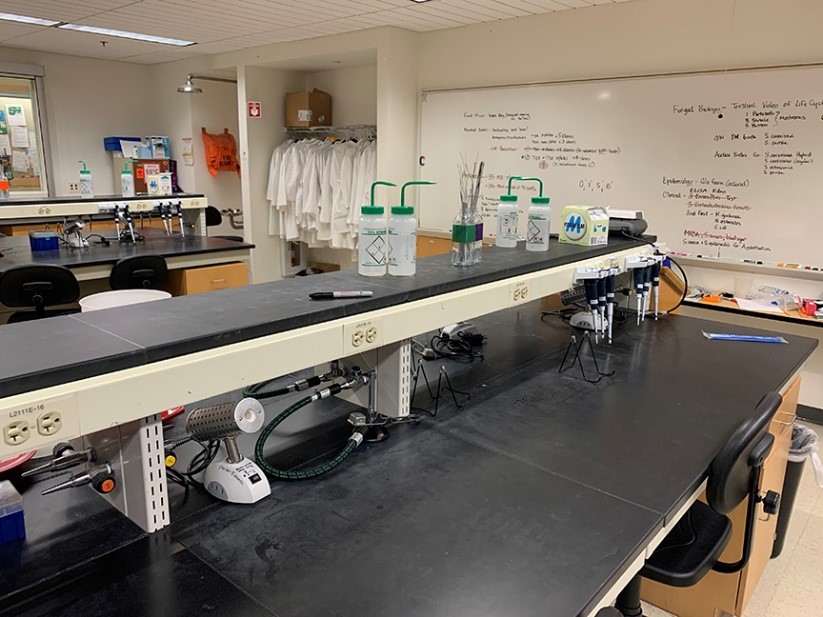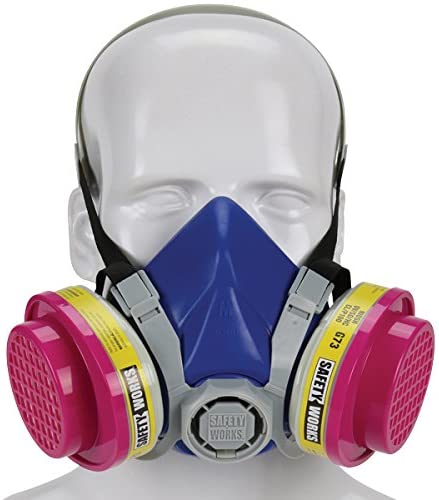A new “normal”: reflections on working as graduate student during the COVID-19 pandemic.
In February 2020, I stood worriedly in a Costco parking lot after stocking up on food. I fumbled around to get my vibrating phone out of my pocket and saw “it’s just going to be a flu” on the lock screen. A close friend had texted me not to worry about the newly documented cases of COVID-19 in the US, but my wrenching gut precluded me from doing so. I had a sinking suspicion that things were going to get worse.
As cases began to rise in Vermont during early March, my anxiety grew as well. Rumors abound of cases in specific buildings and laboratories. Surreptitious emails discussing outbreaks were forwarded between PIs and graduate students alike. Panic was spreading faster than the virus itself. Eventually, my university stepped in and locked down campus. I thought I was safe.
Graduate students were soon bombarded with emails that prompted us to stay in or return to our laboratories in the name of “research enterprise” despite undergraduates being told to stay home. We were not told what qualified as essential work and whether we were essential ourselves. My anxiety transformed into terror as I was being forced to return to my lab for dubious reasons in the early stages of a global pandemic.

Rough representation of where I thought I’d drop dead.
Several days later, the governor issued a superseding stay-at-home order. I thought that now I was surely safe.
Through the summer of 2020, this was the case. Graduate students were allowed to work remotely as science learned more about SARS-CoV-2 and COVID-19. While I felt less productive in my overpriced studio apartment than in my laboratory, I knew that I could run experiments in-person another day. As the beginning of the fall semester approached in August, my anxiety began to return. With less than one week until the start of classes, undergraduates were given PPE, a variety of remote, in-person, and hybrid learning options, and clear explanations of COVID-19 requirements to follow. Graduate students, on the other hand, were told to take and teach classes in-person and were given no PPE provisions. The university offered no recommended modifications to class sizes and structure and didn’t email us at all. We were forgotten.
This forced me and other concerned graduate students to act. We reached out to our city council, who planned to meet with the university’s president before classes began. We relayed our concerns, and after this meeting, in a remarkable coincidence, graduate students were given cloth masks and face shields and told to proceed.
That semester I, ironically, had to teach a microbiology lab comprised of roughly thirty students, in-person, in a room with no windows and little ventilation. My fear remained, and it pushed me to, perhaps irrationally, purchase a half-face respirator for greater protection. I wore this while teaching for the entire semester.

A dummy with a respirator, AKA me.
I remember walking into the room wearing my respirator, lab coat, and face shield, and struggling to focus through it all. My lectures were punctuated by me yelling through the respirator, only for my students to complain that they couldn’t hear me. I was a sweaty, panicked, Darth Vaderesque mess of a human being. My students noted this in their evaluations while commending me for the herculean effort of teaching in-person during the pandemic.
As Spring semester began, vaccine rollout did as well, which provided me enough hope to get through the year. The university held its annual “Graduate Student Appreciation Week” during this semester. For all the stress instilled in me by their decision making, I had hoped they would at least recognize the difficulty and risk of teaching in-person during the pandemic. I was given a $25 gift card and a chocolate bar. In fact, I was one of the “lucky” few who even got a gift card at all.

The peppermint oil makes the dread go down smooth.
When I got vaccinated this past April, I felt genuinely safe, and I began to reflect. All my thoughts converged on this notion: none of what happened should be normal or acceptable.
I’ve begun to swap similar stories with other graduate students about our treatment during the pandemic. From having to conceal one’s immunocompromised status, to being forced to teach and conduct research in unsafe conditions, and then being ignored when voicing pandemic concerns, we’re realizing that we’ve been systemically abused.
In this aftermath, I’ve joined a growing community of scientists, writers, teachers, and other trainees who are organizing to shape a new normal. A new normal where graduate students are treated like people first, and where graduate students feel valued and respected for the intellectuals that we are.
In this new normal, we will be worth more than $25 and a chocolate bar.
